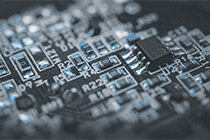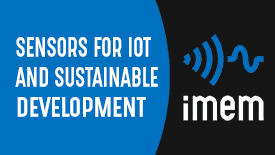The research activity deals with the development of sensors and monitoring systems, often aimed at the IoT (Internet of Things), starting from research in the synthesis and study of active materials, to the design and construction of device geometries, to the optimization of structures, contacts and reading methods. In addition, dedicated electronics and specific application solutions are developed in the institute, up to the production of prototypes and small productions.

The goal is to make the sensors more and more efficient, integrated and sustainable, thanks to innovative and original solutions, continuous research work and comparison with the industrial and production world.
Thanks to research on new materials and the development of innovative technologies, IMEM is at the forefront in the creation of sensors that have unique characteristics such as: high sensitivity and selectivity, high degree of integration, new features, ability to integrate a local power supply , low cost and low consumption, high sustainability, ability to be recycled and reused.
Among the key expertise in the institute in the creation of functional materials, there are nanotechnologies from metal oxides, semiconductors and nanotubes, the synthesis of thin film semiconductors, the synthesis of bulk semiconductors, the use of polymers and organic molecules, also for bioelectronics, the creation of MEMS and microelectronic devices, the deposition of organic and hybrid films, the synthesis of magnetic materials
In addition, the various preparation methods are applied within facilities such as clean rooms, optical lithography laboratories, chemical laboratories, glove rooms and characterized by the multiple analysis tools described in the dedicated pages.
The multiple types of sensors made are in the following groups:













